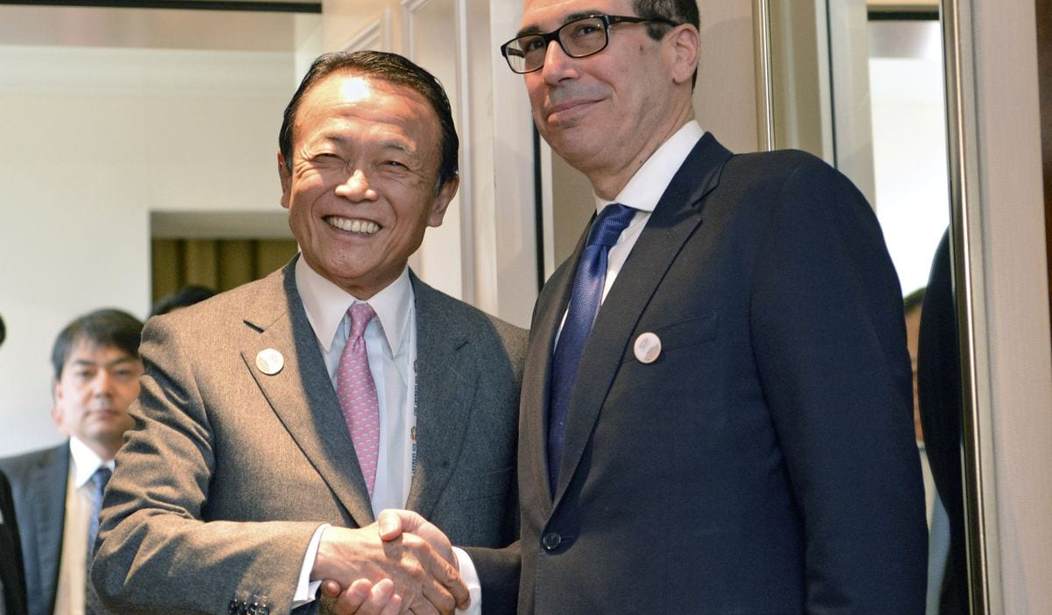In a bid for American support, finance ministers of the G-20 have dropped anti-protectionist language from a communique released on Saturday, delivering a blow to free-trade booster Germany while handing the Trump administration a significant victory.
Group of 20 nations said in a communique on Saturday that they are “working to strengthen the contribution of trade to our economies.” While the U.S. didn’t get all it wanted — such as a explicit pledge to ensure trade is fair — that’s a much pared-down formulation compared with the group’s statement last year, and omits a promise to “avoid all forms of protectionism.”
In two days of meetings in the German town of Baden-Baden, the argument by U.S. Treasury Secretary Steven Mnuchin, in his first appearance at an international forum in the role, reflects claims by President Donald Trump that his nation has had a bad deal from the current global trade setup. That attitude pitched him against most other delegates, who favored a multilateral, rules-based system as embodied in the World Trade Organization.
“My view is that the Americans were doing what any new administration would do — they were looking at the language through their lens,” said Bill Morneau, Canada’s finance minister, who made a last-ditch push for the compromise. “Their lens is: how can trade benefit the U.S.? Everyone else has the same lens, but every other country has the advantage of being at the previous meeting.”
The mood was highlighted the previous day at the White House, where Trump met German Chancellor Angela Merkel and repeated his complaints that his country has been treated “very, very unfairly” in trade arrangements.
While delegates greeted Mnuchin and said that he had been engaged in the process, they said he didn’t elaborate on how the U.S. considers itself to be treated unfairly. It wasn’t possible to reconcile his stance and that of the other members in any substantive way. Officials may continue to seek greater consensus on trade between now and the G-20 leaders summit in Hamburg in July.
I “regret that our discussions today didn’t end in a satisfactory manner,” French Finance Minister Michel Sapin said in a statement. In a press conference later, he said that “there wasn’t a G-20 disagreement, there was disagreement within the G-20 between a country and all the others. This isn’t a caricature, this is the reality of things.”
Ministers decided to give a little now in hopes that they can come up with language later that will satisfy most of the G-20 and Donald Trump before the meeting of principals in July.
Given the chasm between the two sides on the issue of free trade, it’s hard to see how that would be possible.
It’s also difficult to see the rest of the G-20 simply ignoring the issue of protectionism when it’s clear that President Trump means to seek negotiations to alter agreements he feels are unfair. Somewhere, the Europeans are going to have to acknowledge that Trump would risk a trade war to get better terms for America. If that means recognizing America’s inherent right to renegotiate trade agreements, that might be what it will take to get the president on board.
Opposition to the president’s trade policies will have most of the developed world lined up against him. The G-20 will seek to avoid confrontation, but Trump’s policies almost guarantee there will be severe friction between the U..S and most of our longtime allies.










Join the conversation as a VIP Member